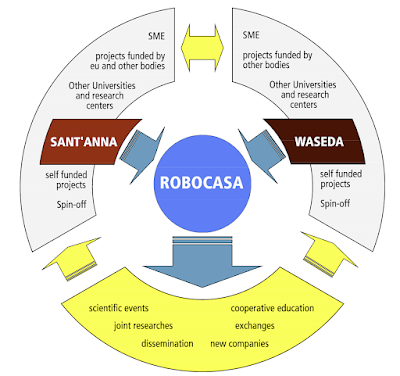In this paper (Trovato, G, Ricotti, L, Laschi, C, Zecca, M, Cosentino, S, Bartolomeo, L, Hashimoto, S, Takanishi, A, Dario, P (2021) The Italy–Japan Workshop: A History of Bilateral Cooperation, Pushing the Boundaries of Robotics, IEEE Robotics & Automation Magazine, 28(3), pp.150-162, ISSN: 1070-9932. DOI: 10.1109/mra.2021.3068559.), we present the experience of a long-lasting collaboration in robotics between Japan and Italy. The diverse approaches to robotics research and technology in the two countries and the similarity of some social needs for robotics progress have created a stimulus for new thinking about robotics not only at the main institutions of Waseda University and Scuola Superiore Sant'Anna but also worldwide. We summarize the Italy-Japan Workshops that explore various topics such as humanoid robotics, the use of robots in education, and the ethics of robotics. The workshops represent an example of an open-minded approach to robotics, grounded on social challenges, explored through multidisciplinary discussions, and faced by interdisciplinary research. This approach could be used as a base model to foster further international collaborations between different countries as well.
Italy and Japan, two distant countries that have a major role in robotics, feature several similar traits and problems. Through the years, the Italy-Japan Workshops explored with a comprehensive perspective compelling issues in robotics, and identified and nurtured emergent research directions with an open-minded, multidisciplinary approach, to the benefit of robotics progress. The different cultural backgrounds of the two countries and the participation of scientists from diverse disciplines, including humanities and social sciences, provided a unique framework to form a new vision of robotics, ultimately leading to new scientific results and new technological developments. We proposed a collaboration model in which two joint research labs were the key components of the larger strategic objective for the creation and strengthening of a solid link between Japan and Italy.
By pursuing this approach at three different levels (excellent research, joint education, and strengthening of industrial relationships), the joint Workshops were a key part of the implementation of this vision.
This long-term collaboration between Japan and Italy in the field of robotics has led to new thinking about the field and new scientific results and technological developments. The Italy-Japan Workshops are an example of an open-minded approach to robotics that could be used as a model for further international collaborations. The future challenges in the field of robotics include simplifying human-robot interactions and addressing the increasing frequency of natural disasters.

